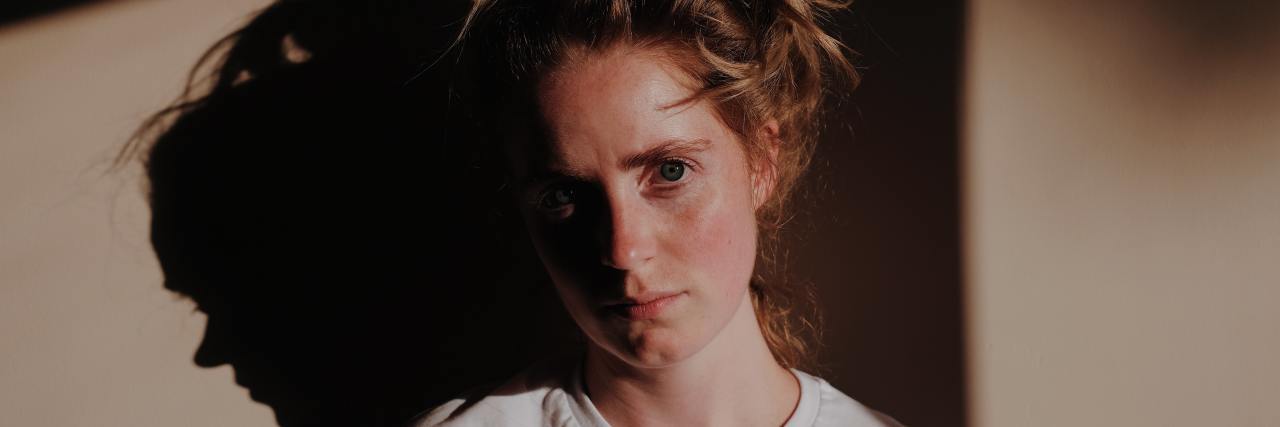Hiding my mental illness symptoms was a way of life. From an early age I quickly learned it wasn’t OK to talk about negative emotions, depression, self-harm, suicide or psychosis. I was loved as the manic child and ignored as the depressed one. I learned then to mask who I was and act like the people around me did. This stunted the development of a personality that was my own. Always masking lead to a lot of years of being undiagnosed. I finally reached my breaking point though.
• What is Bipolar disorder?
The months leading up to being diagnosed with type 1 bipolar was some of the hardest times I’ve had to face in my life. I was constantly struggling and striving to hide my symptoms. It had gotten to the point where I was cycling between mania and depression every three to six days. I was completely out of control, but yet trying so desperately to contain the madness. I was withdrawing from relationships, I was spending extra hours at work to avoid facing the truth, I was short with people, never letting anyone in enough to see what was going on. All my time was spent trying to mask the mood shifting episodes. It was becoming apparent to people around me and I was losing the battle of trying to hide it. I knew what was going on and I was scared of what it meant to be diagnosed. For one thing, it meant I couldn’t deny it any longer.
All that striving to hide my mental illness lead to a burnt out and shell of a person. When I finally surrendered to the fact, I was ill. I couldn’t change it. I couldn’t hide it any longer. I felt a relief come over me. Like it was OK if people saw the shifting moods and unstable person I am. It was OK to be completely broken, undone and raw. It was OK to talk about where I was and honestly answer the question, “How are you?” It meant I didn’t have to hide.
To develop the personality that I had just masked my entire life was like being a 5-year-old again. Trying to sort through who is me and who is the people I’ve been mimicking for all these years was challenging. I was afraid who I truly was was going to be rejected. That I would be tossed to the side and labeled a “crazy” person.
Striving to hide your mental illness is exhausting, I know. It robs you of being your authentic self. It steals all the parts of your personality that are unique to you because of your mental illness. It robs the hope you can give to someone else struggling. The time spent hating and never embracing your mental illness drains you and keeps you from being you.
One of the hurdles I face is anger towards being ill. I feel deep anger and hatred towards the illness. The anger hinders me from being myself. It keeps me from embracing my identity. It keeps me in a state of self-loathing. It is a hurdle and a challenge I face every day. Battling between acceptance and denial of my true self.
Being able to embrace your illness. Recognizing it is a part of you, not to be hated but rather to accept. To find the positive pieces in it. To be acknowledged as a part of your identity that makes up you. It isn’t meant to be hidden. You aren’t meant to mimic other people but rather stand out as the unique person you are. Your illness can seem like only a negative part of you, but take a step back and see how it makes you more empathic, more understanding, more loving towards others who struggle.
If you have never heard it, here it is — it is OK to have a mental illness. It sucks sometimes. There are plenty of negative parts, there are painful parts, and parts we all wish would go away. But it is also OK to accept the illness and find the silver lining in it all.
Photo by Mitchell Orr on Unsplash

